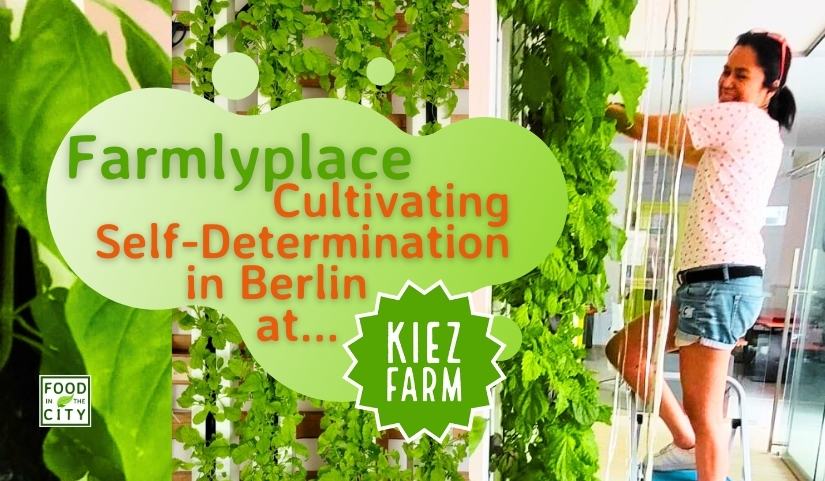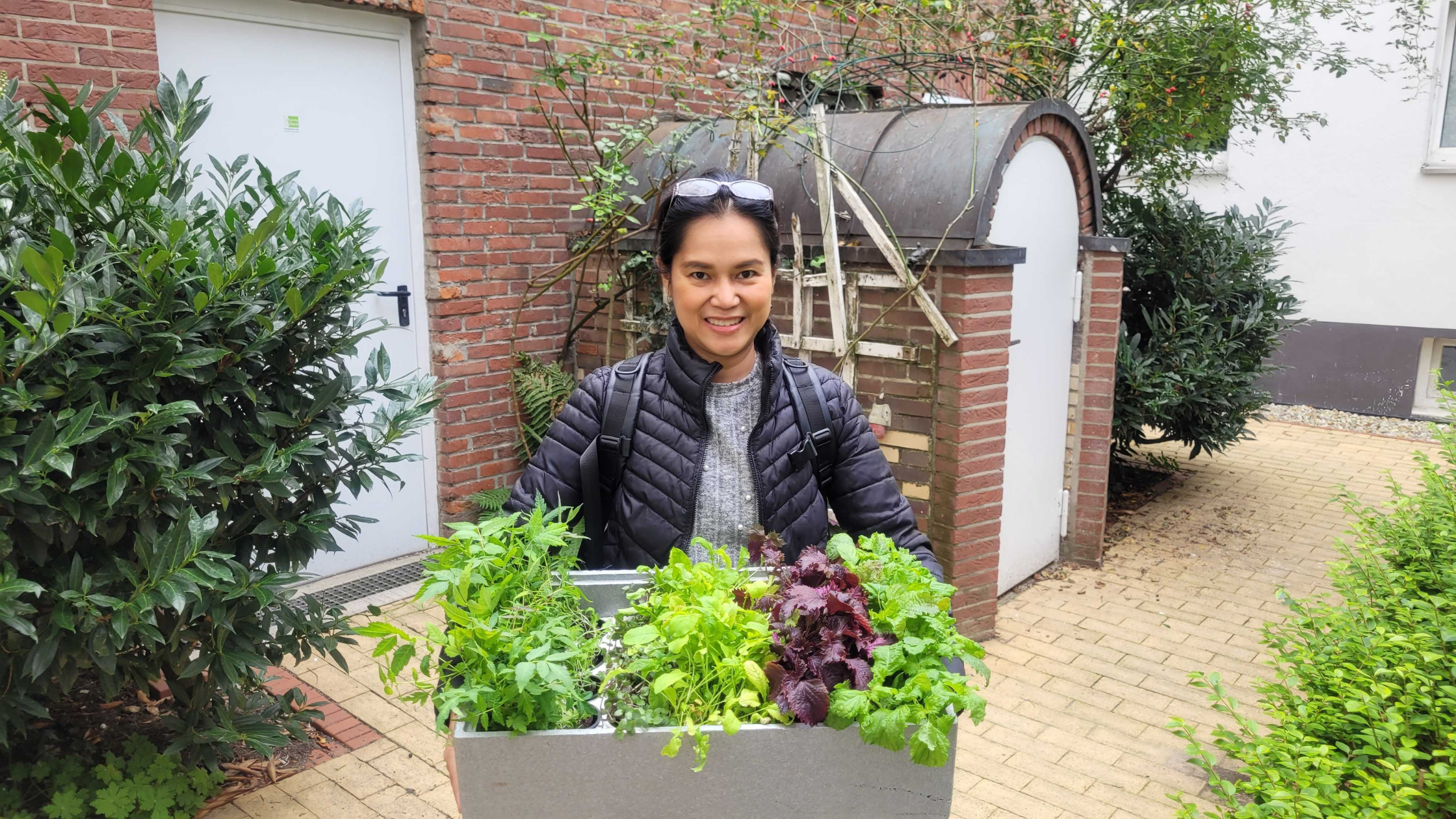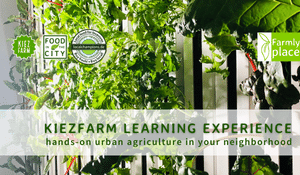However, in this modern era, the younger generations are confronted with a multitude of obstacles that pose a threat to their unwavering determination. Economic hardships, characterized by job insecurity and soaring living expenses, have pushed the hopes and ambitions of many young individuals to the sidelines. The prevalence of overprotective or helicopter parenting has hindered the growth of self-reliance and decision-making skills, both crucial for nurturing a strong sense of self-determination. Moreover, the excessive reliance on digital platforms, commonly referred to as technological lock-in syndrome, obstructs independent thinking and the ability to make well-informed choices. If these challenges are left unattended, they foreshadow a future where innovation is stifled and the enthusiasm for a prosperous future is dimmed.
The Vertical Farming Paradigm: A Beacon of Hope
But hey, don't lose hope just yet! There's a ray of sunshine amidst the gloomy clouds of self-determination decline. Enter vertical farming, the perfect blend of agriculture, entrepreneurship, and social business activities. This article will delve into how this innovative approach can reignite the fire of self-determination among the youth, helping them overcome obstacles and create a brighter future.
The Modern Quagmires Dampening Self-Determination:
- Economic Adversities: Economic insecurities have become a common foe for the youth, often relegating their aspirations and self-determining pursuits to the back seat.
- Helicopter Parenting: Overprotective parenting can inhibit the development of self-reliance and decision-making skills, crucial for nurturing self-determination.
- Technological Lock-in Syndrome: The overdependence on digital platforms can hinder the ability to think independently and make informed decisions, a key aspect of self-determination.
Sowing Seeds of Self-Determination: The Vertical Farming Paradigm:
- Hands-on Training: Vertical farming offers a practical, hands-on approach to learning. Training programs in vertical farming can equip the youth with essential skills in agriculture, technology, and business management, instilling a sense of self-efficacy and independence.
- Entrepreneurial Incubation: The realm of vertical farming is ripe for entrepreneurial endeavors. Young individuals can learn to run their own agricultural enterprises, fostering a spirit of self-determination and financial independence.
- Social Business Engagement: Vertical farming also provides avenues for social business activities, allowing the youth to engage in meaningful work that addresses societal challenges. This engagement can restore a sense of purpose and motivate individuals to take charge of their destinies.
- Community Building and Collaboration: Through collective efforts in vertical farming projects, young individuals can experience the power of community and collaboration. This communal engagement can act as a catalyst for nurturing self-determination and overcoming the aforementioned adversities.
- Technological Integration: Integrating modern technology with vertical farming can also address the technological lock-in syndrome by channeling technological engagement towards productive and meaningful pursuits.
- Environmental Stewardship: Vertical farming emphasizes sustainable agricultural practices, instilling a sense of responsibility and a long-term vision that can be instrumental in fostering self-determination.
In the midst of these challenges, vertical farming emerges as a shining beacon of hope. This revolutionary agricultural approach, interwoven with training, entrepreneurship, and social business activities, serves as a powerful catalyst for reigniting the flames of self-determination among the youth. It's not just your average farming venture; it's a dynamic fusion of science, technology, and entrepreneurship. Vertical farming cultivates independence, problem-solving skills, and community engagement, providing a tangible platform for young individuals to break free from the shackles of external factors and chart a course towards a sustainable and prosperous future.
Hands-on Training
Vertical farming is not your average learning experience. It's a practical, hands-on approach that takes traditional agriculture to new heights. The training programs in this realm not only equip the youth with essential skills in agriculture, technology, and business management, but also instill a strong sense of self-efficacy and independence. By immersing themselves in the vertical farming ecosystem, young individuals are exposed to real-world challenges and problem-solving opportunities that cultivate a mindset of continuous improvement and innovation. It's like a crash course in becoming the next agricultural superhero!
In the realm of vertical farming, the learning experience is unlike any other. Through hands-on activities like planting, nurturing, and harvesting crops in a controlled indoor environment, young individuals gain a profound understanding of sustainable agriculture practices, effective resource management, and the utilization of cutting-edge technologies. They also discover the significance of maintaining optimal growing conditions, including temperature, humidity, and lighting, which are crucial for maximizing crop yields.
In addition, the vertical farming ecosystem offers a remarkable platform for young individuals to collaborate and exchange ideas with fellow enthusiasts. By working together to design and implement inventive solutions to shared challenges, they cultivate essential teamwork and communication skills that are crucial for success in any industry. This spirit of collaboration fosters a supportive and inclusive community, where individuals can learn from one another's experiences and inspire each other to push the boundaries of what is achievable in vertical farming.
The vertical farming ecosystem presents young individuals with abundant opportunities for critical and creative thinking. They are consistently confronted with challenges such as optimizing crop growth, managing pests and diseases, and maximizing resource efficiency. Through constant experimentation and adaptation of strategies and techniques, they continuously seek innovative methods to enhance their yields and minimize environmental impact. This process of ongoing improvement not only enhances their problem-solving abilities but also nurtures a mindset of innovation that can be applied across various aspects of their lives.
Entrepreneurial Incubation
Vertical farming is like a playground for young entrepreneurs. They can dive into their own agricultural ventures, gaining the skills to navigate economic challenges while nurturing a strong sense of self-determination. It's all about taking ownership and responsibility for their businesses, making critical decisions about crops, resources, and market strategies. By running their own enterprises, they become masters of the entrepreneurial game, fostering a sense of independence and financial freedom.
The entrepreneurial incubation within vertical farming equips young individuals with a diverse set of skills that are applicable beyond the realm of agriculture. From financial management to marketing, they gain practical knowledge that can be transferred to various industries and sectors. This multifaceted skillset enables them to navigate economic challenges with confidence and adaptability, setting the stage for long-term success in an ever-changing world.
In addition to equipping young individuals with practical skills, the entrepreneurial aspect of vertical farming nurtures a culture of self-determination. By taking ownership of their agricultural enterprises, they become architects of their own destinies. This sense of autonomy and self-reliance empowers them to overcome obstacles and seize opportunities, both in their personal and professional lives. It instills a mindset of perseverance and resilience, essential qualities for achieving success in any endeavor.
The entrepreneurial journey within vertical farming encourages young individuals to think creatively and innovatively. As they face the challenges of optimizing crop growth, managing resources efficiently, and reaching target markets, they are constantly pushed to find innovative solutions. This process of problem-solving not only enhances their ability to think critically but also nurtures an entrepreneurial mindset that is essential for driving innovation and pushing boundaries.
Social Business Engagement
But wait, there's more! Vertical farming not only offers opportunities for young individuals to grow and sell their own crops, but it also allows them to tackle real-world problems and make a meaningful impact on their communities. By partnering with local schools to provide fresh and nutritious food for students, they can take a stand against food insecurity and promote the well-being of their neighborhoods. This goes beyond personal gain and gives them a sense of purpose and social responsibility. Vertical farming truly opens up a whole new world of social business engagement where young individuals can make a difference and take control of their destinies.
Vertical farming also allows for innovative solutions to be developed that address specific societal challenges. For instance, young individuals can focus on growing crops that are resilient to climate change or that require minimal water usage. By doing so, they contribute to environmental sustainability and help mitigate the effects of global warming. This not only benefits the community but also instills a sense of pride and accomplishment in the youth, as they witness the positive impact of their efforts.
Social business activities within the realm of vertical farming offer opportunities for collaboration and community engagement. Young individuals can organize workshops and educational programs to teach others about the benefits of vertical farming and sustainable agriculture. By sharing their knowledge and experiences, they inspire others to take action and become active participants in solving societal challenges. This sense of community involvement strengthens their sense of self-determination, as they see themselves as catalysts for change and agents of progress.
Conclusion
So, how do we reignite self-determination among the youth? It's going to take a collective effort from families, educators, policymakers, and the individuals themselves. But fear not, because vertical farming is here to save the day! This innovative approach, combined with training, entrepreneurship, and social business activities, provides a hopeful framework for reviving self-determination among the youth. By creating empowering environments for learning, innovation, and community engagement, we can inspire the young generation to break free from the challenges posed by the economy, parenting, and technology, steering them towards a sustainable and prosperous future. Let's get ready to rock the world of agriculture and empower the next generation!
Through these initiatives, we can reshape the narrative of self-determination, ensuring a lasting heritage of innovation and prosperity for future generations. Vertical farming presents a unique opportunity for young individuals to nurture their entrepreneurial spirit and cultivate a culture of self-determination. By taking charge of their own agricultural enterprises, they not only gain practical skills and navigate economic challenges, but also develop a mindset of resilience and innovation. This incubation of entrepreneurship not only sets them on a path to financial independence, but also equips them with the necessary tools and mindset for personal and professional growth. Within the realm of vertical farming, the seeds of entrepreneurship are planted, paving the way for a sustainable future.





